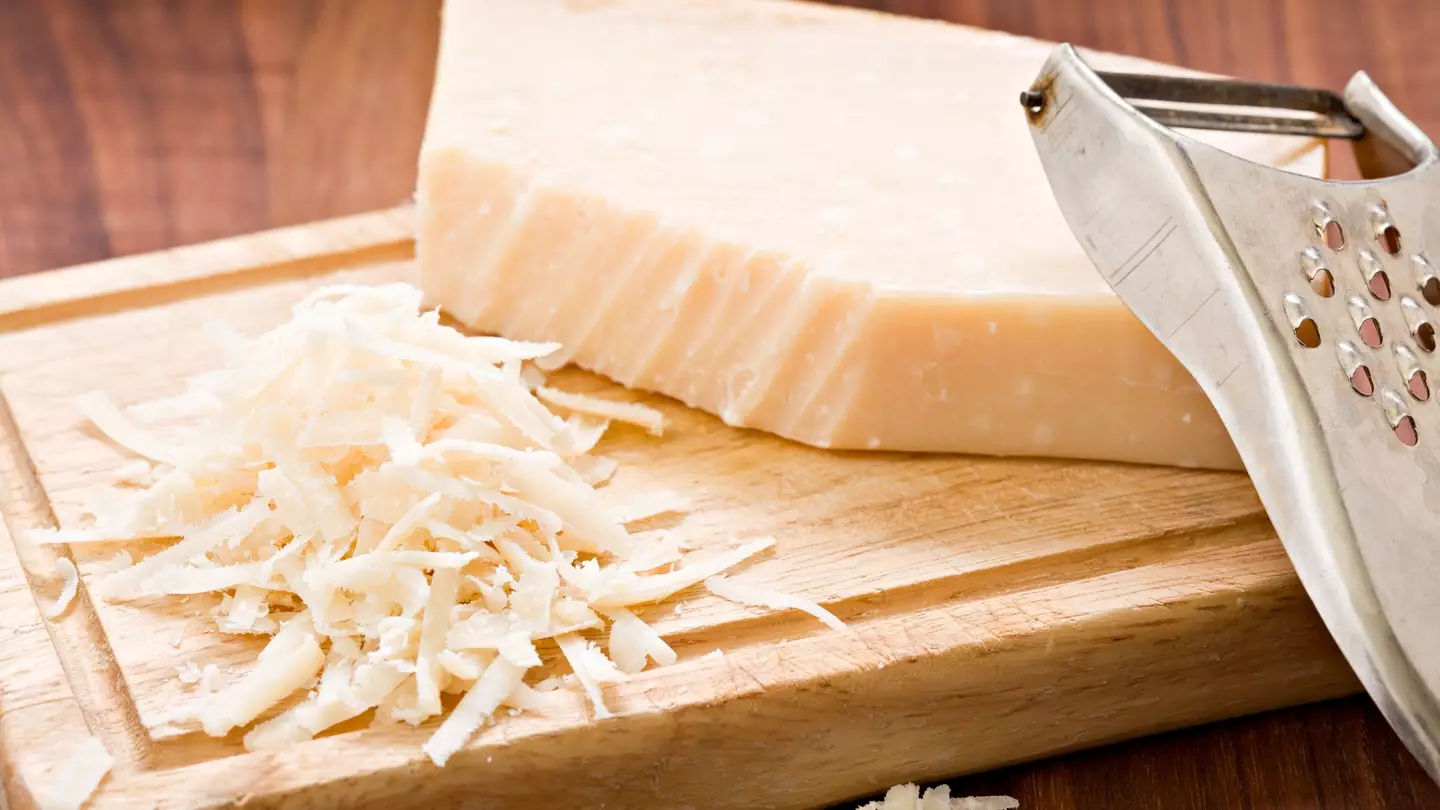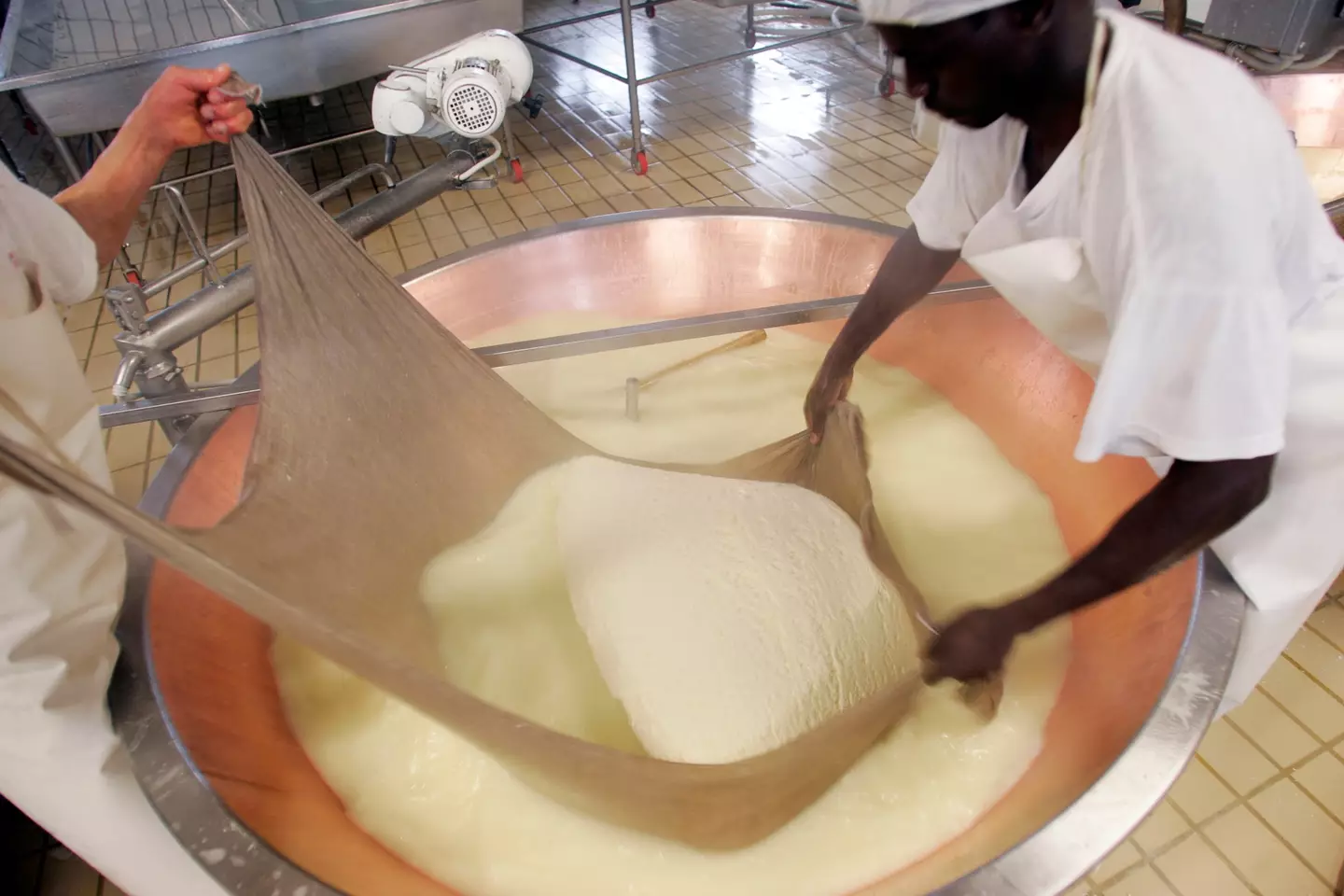
Whenever you meet someone considering going vegan, the one thing they always say they'd miss the most is cheese.
And ye,t a whole load of cheese lovers are now vowing to go vegan after discovering the meticulous and bizarre way in which parmesan is made.
As far as cheese goes, parmesan has got to be up there as one of the most unsung heroes. I mean, imagine a spag bol without fresh grated parmesan.
Anway, you probably don't know how the italian favourite is actually made, because why would you? But don't worry, we're about to ruin it for you too.
Advert
As with most cheeses, parmesan starts with fresh, raw cow's milk, taken from evening and morning milkings. The evening milk is partially skimmed to remove some of the cream, before the morning milk is added to create a blend which provides the low-fat yet rich composition of parmesan.

The milk mixture is then poured into large copper vats and heated to 33 to 35 degrees, before the previous day's batch is added to encourage fermentation.
Pretty straight forward? Well, here's where people start to feel a bit queasy.
The next ingredient is calf rennet, which causes the milk to coagulate and form a curd. For those who don't know, rennet is taken from the stomach lining of young, milk-fed calves that are usually younger than 30 days old.
The upsetting news is calves have been slaughtered before the rennet is extracted from the fourth stomach. The animals aren't killed for the rennet, but rather for veal or beef, and the stomachs are collected as a byproduct.
Going back to the parmesan-making process, the curd is then cut into tiny granules roughly the size of a grain of rice and heated up to 55 degrees to get rid of any moisture.
.jpg)
One the curd sinks to the bottom of the mixture, forming a compact mass of cheese, it is then scooped out, wrapped in linen, and placed in a circular mold to shape the wheel, before being pressed and turned several times over a number of days.
Thought we were finished? Nope, the long and drawn out process means the wheel of cheese needs to be soaked in saltwater for 20 to 25 days, before being moved to an aging room where it will rest for one to three years.
So, after learning all of that, you can kind of understand why some people have vowed to take on a life of veganism, with one person writing on X: "Today years old when I found out Parmesan cheese is made from baby cow’s stomach and I could go cry. I’m just gonna have to go full vegan at this point."
"To make parmesan they use something called rennet which is a substance they collect from the calf's stomach and obvs it has to be dead," another wrote. "I'm so sad."
Topics: Animals, Food And Drink, Twitter, Vegan, Viral
